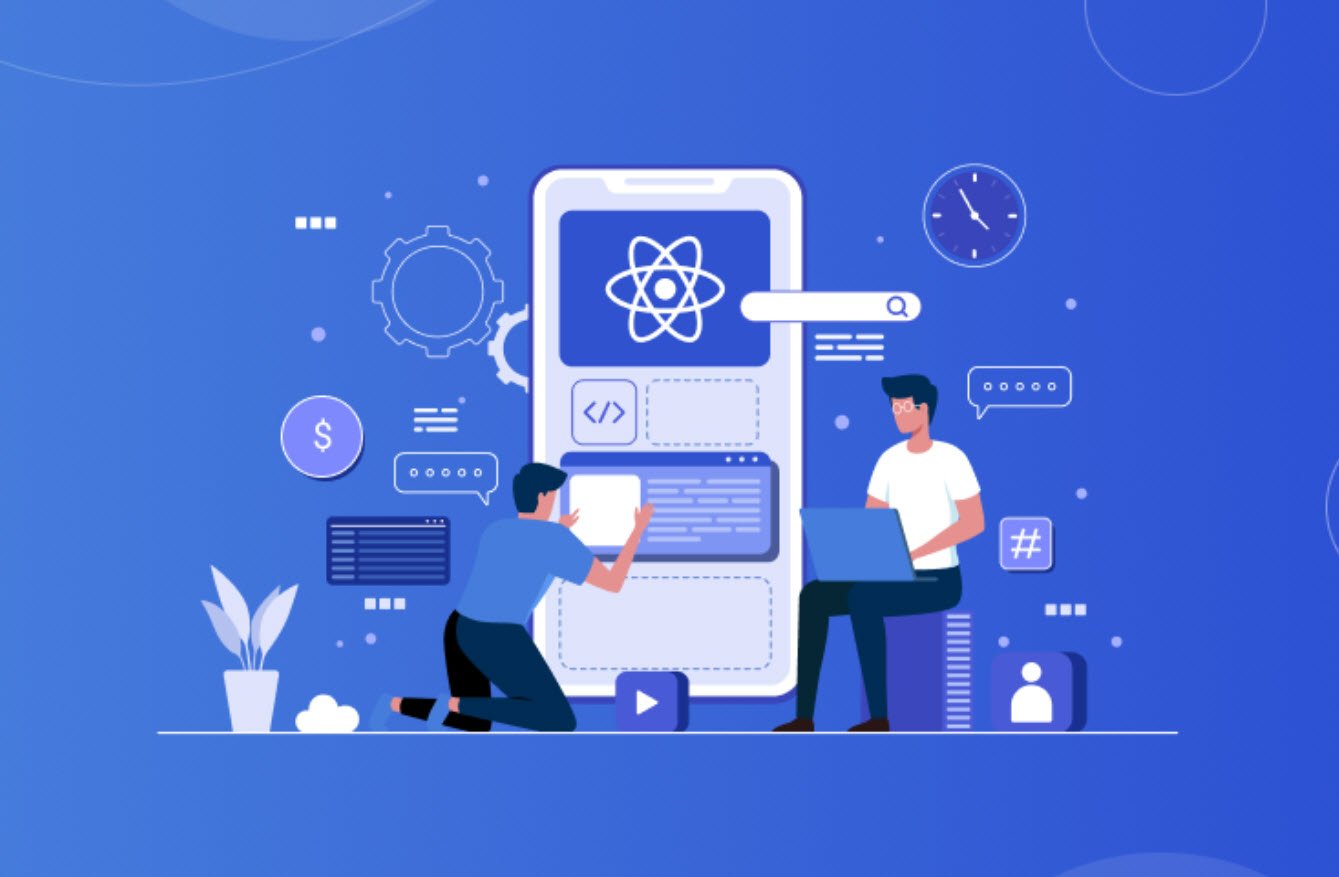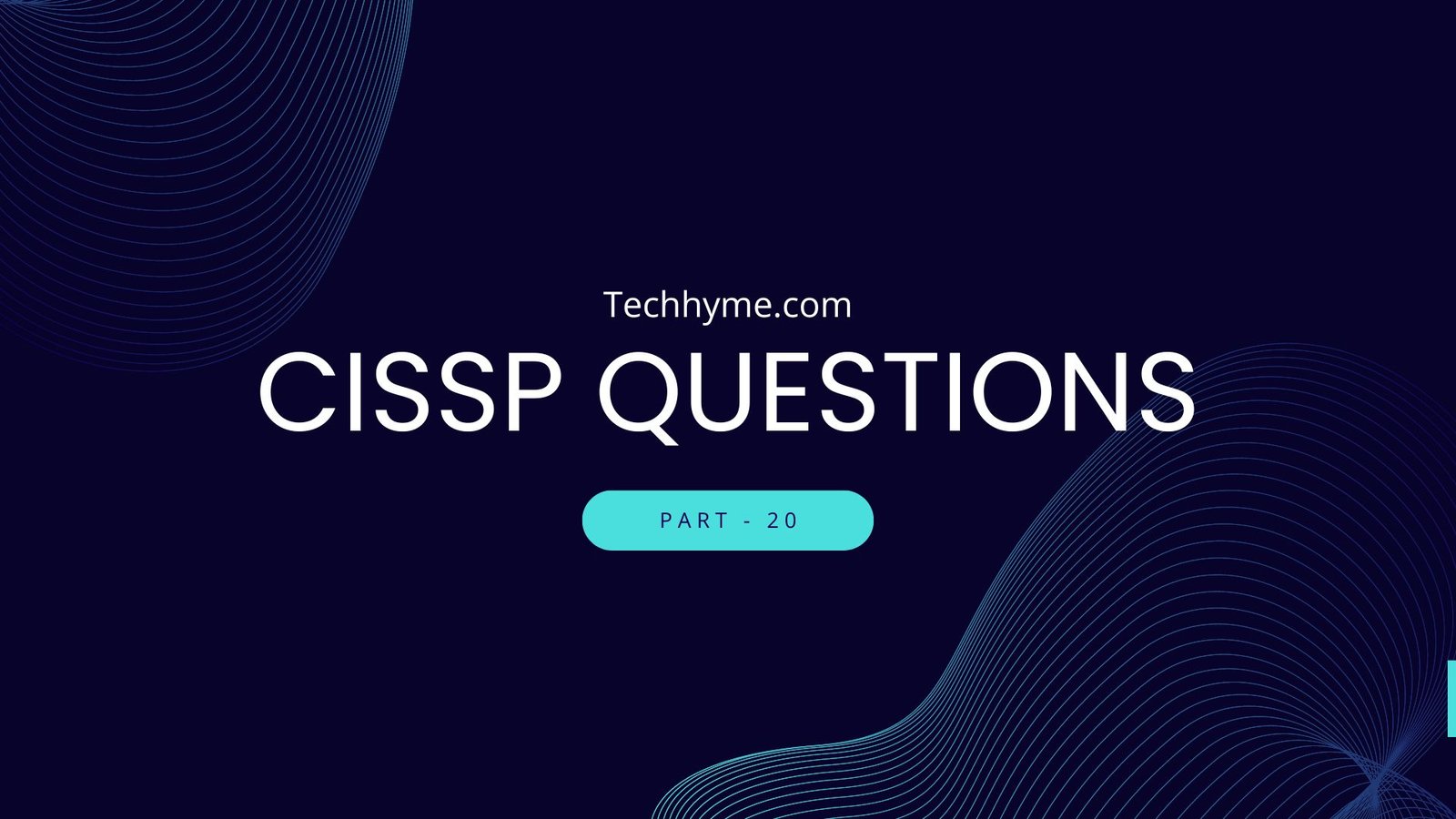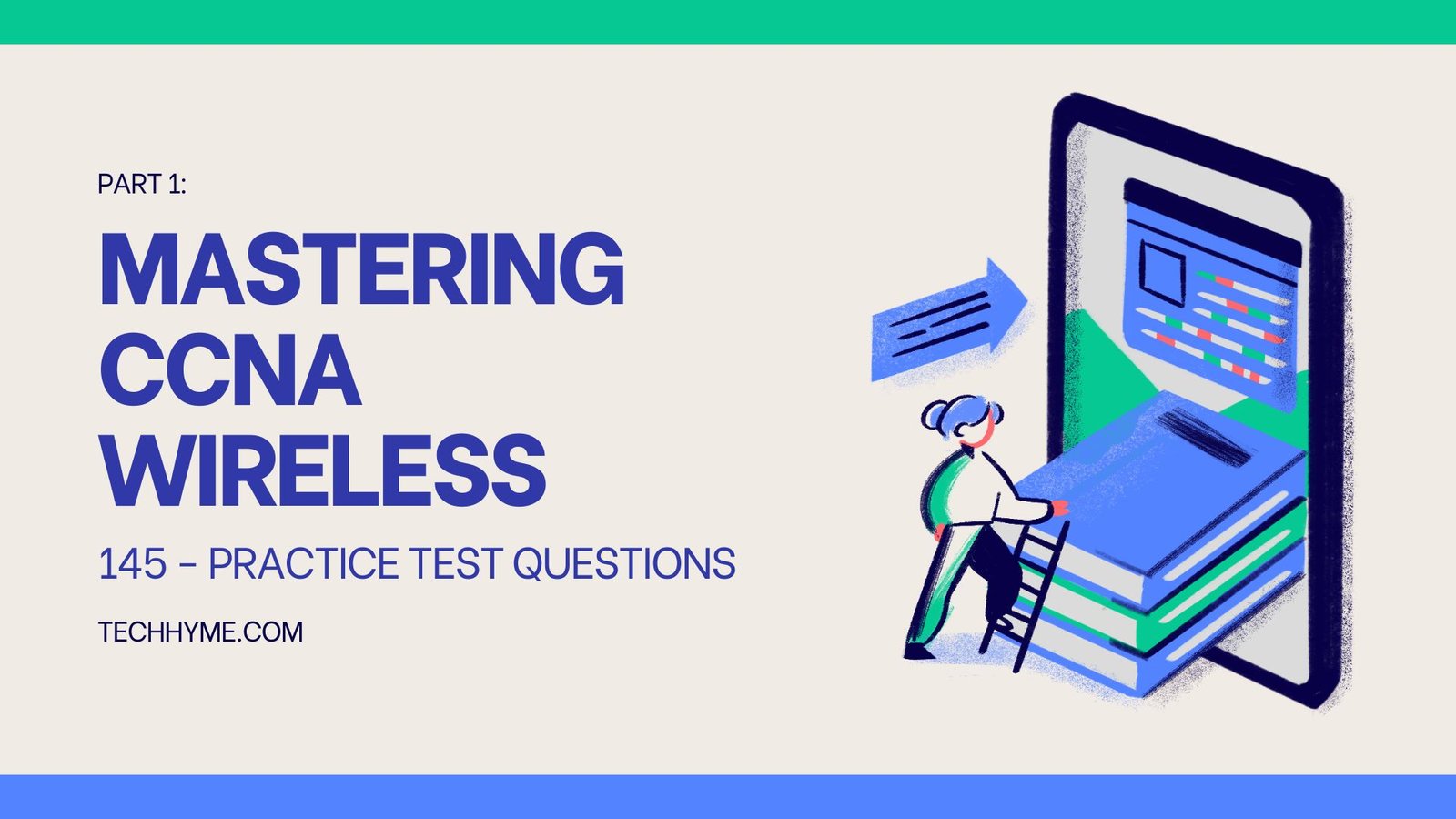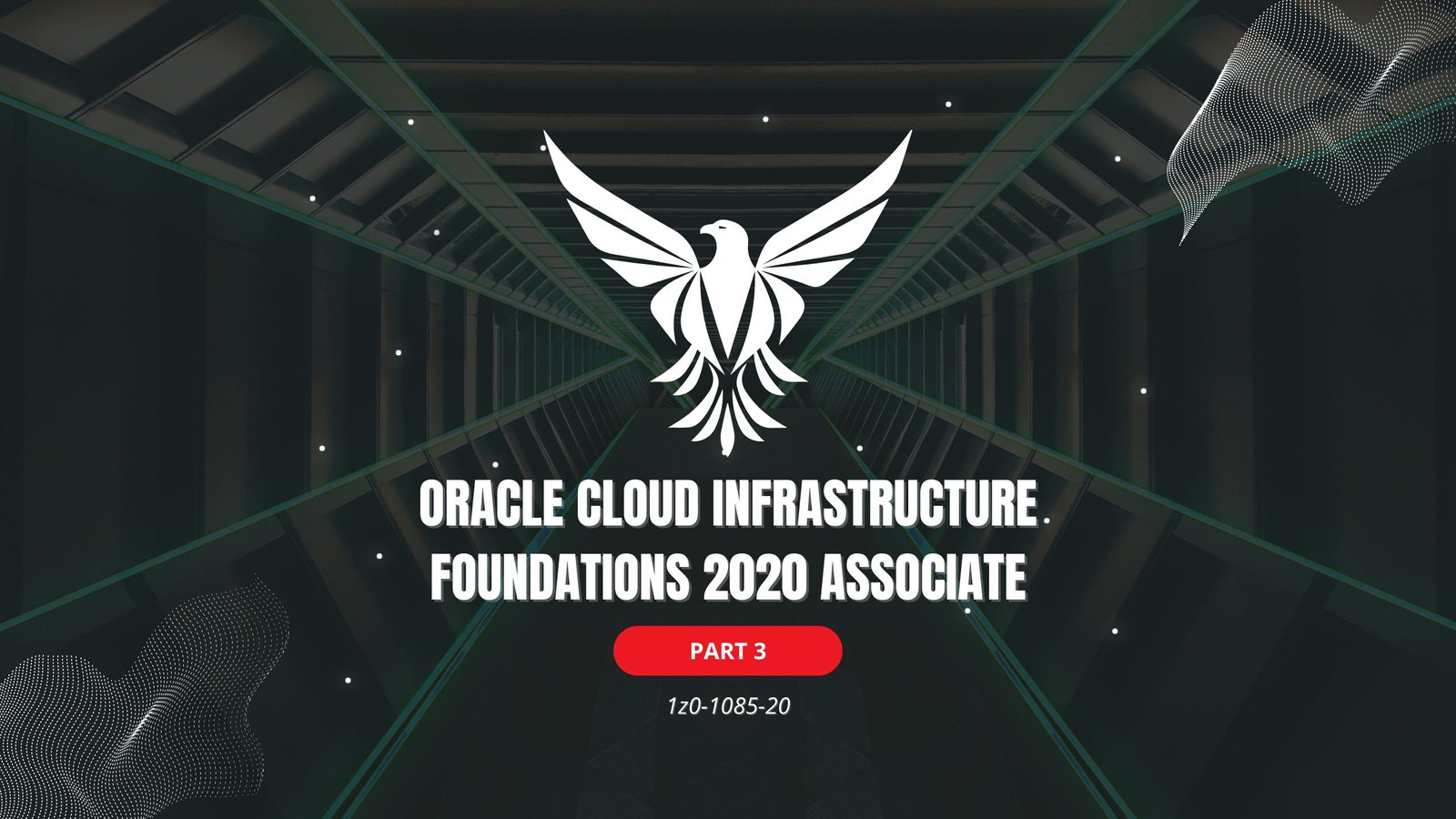
The Open Group Architecture Framework (TOGAF) is one of the most used framework for enterprise architecture as that provides an approach for designing, planning, implementing, and governing an enterprise information technology architecture.
Also Read:
- TOGAF – Multiple Choice Questions with Answers – Part 1
- TOGAF – Multiple Choice Questions with Answers – Part 2
- TOGAF – Multiple Choice Questions with Answers – Part 3
- TOGAF – Multiple Choice Questions with Answers – Part 4
Question: 1 Which of the following TOGAF components was created to enable architects to design architectures addressing Boundary less Information Flow?
A. The Architecture Repository
B. The Enterprise Continuum
C. The Integrated Information Infrastructure Model
D. The TOGAF Technical Reference Model
Answer: C
Question: 2 Which of the following best describes the TOGAF Technical Reference Model?
A. It is a detailed data model that can be tailored to specific industries
B. It is an example of a Common Systems Architecture
C. It is a fundamental architecture upon which more specific architectures can be based
D. It is a model of application components and application services software, including brokering applications
Answer: C
Question: 3 Which one of the following statements about the structure of the TOGAF 9 document is true?
A. Part I, the Enterprise Continuum, describes a model for structuring a virtual repository
B. Part II, the Architecture Development Method, describes the definitions of terms used in TOGAF, and the changes between versions of TOGAF
C. Part III, Tools and Support, describes a collection of guidelines and techniques used in the other parts of TOGAF
D. Part VI, TOGAF Reference Models, includes a model for release management of the TOGAF specification
E. Part VII, the Architecture Capability Framework, describes processes and skills to establish an enterprise function
Answer: E
Question: 4 Which phase of the ADM ensures that implementation projects conform to the defined architecture?
A. Requirements Management
B. Phase D
C. Phase F
D. Phase G
E. Phase H
Answer: D
Question: 5 Complete the sentence. The Requirements Management Phase __________.
A. addresses and resolves requirements between ADM phases
B. is a central process that prioritizes requirements for all ADM phases
C. is used to dispose of resolved requirements for all ADM phases
D. generates new requirements and passes them to all ADM phases
E. stores requirements and manages their flow into relevant ADM phases
Answer: E
Question: 6 Which one of the following is an objective of the Preliminary Phase of the ADM?
A. To define the Baseline Architecture for this cycle of the ADM
B. To define the application systems for the Target Architecture
C. To define the framework and methodologies to be used
D. To define the relevant stakeholders and their concerns
E. To define and prioritise work packages
Answer: C
Question: 7 According to TOGAF, when creating views for a particular architecture, what is the recommended first step?
A. Design a viewpoint to address all stakeholder concerns
B. Develop views for the target architecture first
C. Ensure completeness of the architecture
D. Refer to existing libraries of viewpoints, to identify one for re-use
Answer: D
Question: 8 Which of the following architectures in the Architecture Continuum contains the most re-usable architecture elements?
A. Common Systems Architectures
B. Foundation Architectures
C. Industry Architectures
D. Organization-Specific Architectures
Answer: B
Question: 9 Which of the following describes the Architecture Vision document?
A. A description of individual change increments showing progression from the baseline to target architecture
B. A detailed schedule for implementation of the target architecture
C. A high level description of the baseline and target architectures
D. A joint agreement between the development team and sponsor on the deliverables and quality of an architecture
E. A set of rules and guidelines to support fulfilling the mission of the organization
Answer: C
Question: 10 According to TOGAF, which of the following best describes how the Enterprise Continuum is used in organizing and developing an architecture?
A. It is used to coordinate with the other management frameworks in use
B. It is used to describe how an architecture addresses stakeholder concerns
C. It is used to identify and understand business requirements
D. It is used to provide a system for continuous monitoring
E. It is used to structure re-usable architecture and solution assets
Answer: E
Question: 11 What document is sent from the sponsoring organization to the architecture organization to trigger the start of an ADM cycle?
A. Architecture Contract
B. Architecture Definition Document
C. Architecture Vision
D. Request for Architecture Work
E. Statement of Architecture Work
Answer: D
Question: 12 According to TOGAF, which of the following best describes Architecture Governance?
A. A categorization mechanism for architecture and solution artifacts
B. A framework for operational and change activity
C. A method for designing an information system in terms of a set of building blocks
D. The lifecycle management of information and related technology used by an organization
E. The practice by which enterprise architectures are controlled at an enterprise-wide level
Answer: E
Question: 13 Which component within the Architecture Repository holds best practice or template materials that can be used to construct architectures?
A. Architecture Capability
B. Architecture Landscape
C. Architecture Metamodel
D. Governance Log
E. Reference Library
Answer: E
Question: 14 Complete the sentence. According to TOGAF, all the following are responsibilities of an Architecture Board, except __________.
A. Allocating resources for architecture projects
B. Decision making for changes in the architecture
C. Enforcing Architecture Compliance
D. Improving the maturity of the organization’s architecture discipline
E. Production of governance materials
Answer: A
Question: 15 According to TOGAF, which of the following best describes the purpose of a Compliance Assessment?
A. To ensure that architecture information is communicated to the right stakeholders at the right time
B. To govern the architecture throughout its implementation process
C. To provide a high-level view of the end architecture product
D. To show progression of change from the Baseline Architecture to the Target Architecture
Answer: B
Question: 16 Which of the following describes a key objective of the Technology Architecture Phase?
A. To define the solution architecture needed to support the Application Architecture
B. To define technology components into a set of technology platforms
C. To define the Transition Architectures needed to achieve the Target Architecture
D. To develop a migration plan to deliver incremental capabilities
E. To select a set of technology products that will form the basis of a solution architecture
Answer: B
Question: 17 Which one of the following statements best describes why the ADM should be adapted?
A. To align it closer to the business
B. To make the use more realistic
C. To move through the cycle faster
D. To suit the specific needs of the enterprise
Answer: D
Question: 18 In which phase of the TOGAF ADM are Gap Analysis results from earlier phases consolidated?
A. Phase D
B. Phase E
C. Phase F
D. Phase G
E. Phase H
Answer: B
Question: 19 Which of the following best describes the purpose of a business scenario?
A. To define and plan an enterprise architecture transformation based on Capability-Based Planning
B. To develop a set of general rules and guidelines for the architecture being developed
C. To develop a set of security guidelines for the architecture being developed
D. To help identify and understand the business requirements that an architecture must address
E. To identify and mitigate the risks when implementing an architecture project
Answer: D
Question: 20 According to TOGAF, which of the following best describes the classification of architectural change in the case where multiple server systems are being consolidated to a single system?
A. A bottom-up change to enhance operational capability
B. An incremental change handled via change management techniques
C. A re-architecting change that puts the whole architecture through an ADM cycle
D. A revision change of the enterprise architecture
E. A simplification change handled via change management techniques
Answer: E
Question: 21 Which of the following statements best describes the purpose of enterprise architecture?
A. To allow an enterprise to exploit the latest trends in technology
B. To enable the CIO to take effective control of the business units across an enterprise
C. To ensure compliance in an enterprise to corporate auditing standards
D. To optimise an enterprise into an environment that is responsive to business needs
E. To provide a set of standards that all actors must adhere to within an enterprise
Answer: D
Question: 22 Which of the following statements best describes how Architecture Principles are used within the ADM?
A. They are used to define the framework and detailed methodologies
B. They are used to define stakeholders and their concerns
C. They are used to determine the readiness factors impacting the organization
D. They are used to guide decision making within the enterprise
E. They are used to resolve and dispose of requirements
Answer: D
Question: 23 Which of the following statements about TOGAF Building Blocks and their use in the ADM cycle is correct?
A. Building Blocks become more implementation-specific in Phase E
B. Building Blocks in phases D, E and F are evolved to a common pattern of steps
C. Building Blocks should be identified in abstract form as part of the Preliminary Phase
D. Building Blocks should be first selected in Phase D
Answer: A
Question: 24 Which one of the following is an objective of Phase A of the TOGAF ADM?
A. To allocate the resources needed to implement the architecture project
B. To define the framework that is going to be used to develop the enterprise architecture
C. To define an IT Strategy that maps out the technology infrastructure
D. To prepare a Solution Architecture for the enterprise
E. To secure formal approval to proceed
Answer: E
Question: 25 Complete the sentence. TOGAF 9 Part III provides a set of resources that can be used to adapt and modify the ____________.
A. Architecture Capability
B. Architecture Development Method
C. Architecture Landscape
D. Architecture Repository
E. Enterprise Continuum
Answer: B
Question: 26 Which of the following best describes how TOGAF defines an enterprise?
A. Any collection of organizations that has a common set of goals
B. Any corporation with more than 10,000 employees
C. Any organization involved in commerce
D. Any organization whose stock is traded
E. Any set of organizations based at the same geographic location
Answer: A
Question: 27 Which of the following is an objective of Phase B, Business Architecture?
A. To confirm the ability of the enterprise to undergo change
B. To demonstrate how stakeholder concerns are addressed in the Business Architecture
C. To develop a Target Technology Architecture to support the business
D. To finalize the Architecture Vision and Architecture Definition documents
E. To maximize the business value from the architecture
Answer: B
Question: 28 Which section of the TOGAF template for Architecture Principles should highlight the business benefits for adhering to the principle?
A. Implications
B. Name
C. Rationale
D. Statement
Answer: C
Question: 29 Which of the following is defined by TOGAF as a representation of a system from the perspective of a related set of concerns?
A. Architecture Building Block
B. Capability Architecture
C. Statement of Work
D. View
E. Viewpoint
Answer: D
Question: 30 Complete the sentence. The TOGAF Architecture Governance Framework includes _________.
A. a list of responsibilities for running an Architecture Board
B. a model for governance including process, content and context
C. guidance for establishing an Architecture Capability using the ADM
D. the Architecture Compliance review process and checklists
Answer: B
Question: 31 In the Solutions Continuum, which of the following is the correct order of solutions ranging from generic solution to enterprise specific solution?
A. Foundation, Common Systems, Industry, Organization-Specific
B. Industry, Foundation, Common Systems, Organization-Specific
C. Organization-Specific, Industry, Common Systems, Foundation
D. Organization-Specific, Industry, Foundation, Common Systems
Answer: A
Question: 32 Which one of the following best describes the purpose of ADM Phase E?
A. To define the initial implementation plans
B. To define the scope, identifying stakeholders and obtaining approvals
C. To develop the Technology Architecture
D. To manage requirements throughout the ADM
E. To perform architectural oversight for the implementation
Answer: A
Question: 33 Which one of the following categories from the Document Categorization model consists of the normative parts of TOGAF which are considered central to its usage?
A. TOGAF Core
B. TOGAF Mandated
C. TOGAF Recommended
D. TOGAF Referenced
E. TOGAF Supporting
Answer: B
Question: 34 Which one of the following statements about TOGAF Building Blocks is true?
A. Building blocks at a functional level are known as Solutions Building Blocks
B. Solutions Building Blocks are selected in Phases A, B, C and D
C. The specification of a building block should be loosely coupled to its implementation
D. The gap analysis technique should be used to identify building blocks for re-use
Answer: C
Question: 35 What part of the Architecture Repository shows the building blocks that are currently in use within the organization?
A. Architecture Landscape
B. Architecture Metamodel
C. Governance Log
D. Reference Library
E. Standards Information Base
Answer: A
Question: 36 Which one of the following is responsible for the acceptance and sign-off of an Architecture Compliance review?
A. Architecture Board
B. Architecture Review Co-ordinator
C. CIO
D. Lead Enterprise Architect
E. Project Leader
Answer: A
Question: 37 According to TOGAF, in which phase of the ADM should an initial assessment of business transformation readiness occur?
A. Preliminary Phase
B. Phase A
C. Phase B
D. Phase F
E. Phase G
Answer: B
Question: 38 Complete the sentence. A gap analysis will enable the architect to do all of the following except _____.
A. identify building blocks that have been inadvertently omitted
B. identify building blocks that have been intentionally eliminated
C. identify building blocks to be carried over
D. identify new building blocks that are needed
E. identify potential vendors to provide new building blocks
Answer: E
Question: 39 Which of the following best describes an approach for adapting the ADM in the situation where the business case for doing architecture is not well recognized?
A. Completion of the Business Architecture should follow the Information Systems Architecture
B. Create an Architecture Vision and then a detailed Business Architecture
C. Produce a “cut-down” version of the ADM suitable to the resources available
D. Tailor the ADM in conjunction with another architecture framework that has deliverables specific to the vertical sector
E. Tailor the ADM to reflect the relationships with, and dependencies on other management processes within the organization
Answer: B
Question: 40 What technique does TOGAF recommend for evaluating the status of an organization to undergo change?
A. Business Transformation Readiness Assessment
B. Business Value Assessment Technique
C. Capability-Based Planning
D. Communications and Stakeholder Management
E. Gap Analysis
Answer: A
Question: 41 Which of the following best describes the meaning of “Initial Level of Risk” in Risk Management?
A. The categorization after implementation of mitigating actions
B. The categorization after initial risk assessment
C. The categorization after mitigation and residual risk assessment
D. The categorization before determining and implementing mitigating actions
E. The categorization before risk identification
Answer: D
Question: 42 Complete the sentence. According to TOGAF, a view is used to describe how the _____ of a stakeholder are being met.
A. concerns
B. constraints
C. interests
D. perspective
E. requirements
Answer: A
Question: 43 Complete the sentence. The Architecture Development Method produces content to be stored in the Repository, which is classified according to the __________________.
A. ADM Guidelines and Techniques
B. Architecture Capability Framework
C. Architecture Capability Model
D. Enterprise Continuum
E. Standards Information Base
Answer: D
Question: 44 Which of the following best describes the state of architecture artifacts as a project progresses through ADM Phases A to D?
A. The artifacts are transformed into solution architectures
B. The artifacts become increasingly product focused
C. The artifacts become increasingly generic and re-usable
D. The artifacts evolve from generic architectures to organization-specific architectures
E. The artifacts evolve from common systems architectures to foundation architectures
Answer: D
Question: 45 Which of the following describes the Phase H classification for an Incremental change?
A. A change driven by a requirement to derive additional value from the existing investment
B. A change driven by a requirement to increase investment in order to create new value for exploitation
C. A change driven by a requirement to reduce investment
D. A change driven by a requirement to re-align with the business strategy
Answer: A
You may also like:- 80 Most Important Network Fundamentals Questions With Answers
- 100 Most Important SOC Analyst Interview Questions
- Top 40 Cyber Security Questions and Answers
- Top 10 React JS Interview Theory Questions and Answers
- CISSP – Practice Test Questions – 2024 – Set 20 (53 Questions)
- Part 2: Exploring Deeper into CCNA – Wireless (145 Practice Test Questions)
- Part 1: Mastering CCNA – Wireless (145 Practice Test Questions)
- [1z0-1085-20] Oracle Cloud Infrastructure Foundations 2020 Associate MCQ Questions – Part 3
- [1z0-1085-20] Oracle Cloud Infrastructure Foundations 2020 Associate MCQ Questions – Part 2
- [1z0-1085-20] Oracle Cloud Infrastructure Foundations 2020 Associate MCQ Questions – Part 1








